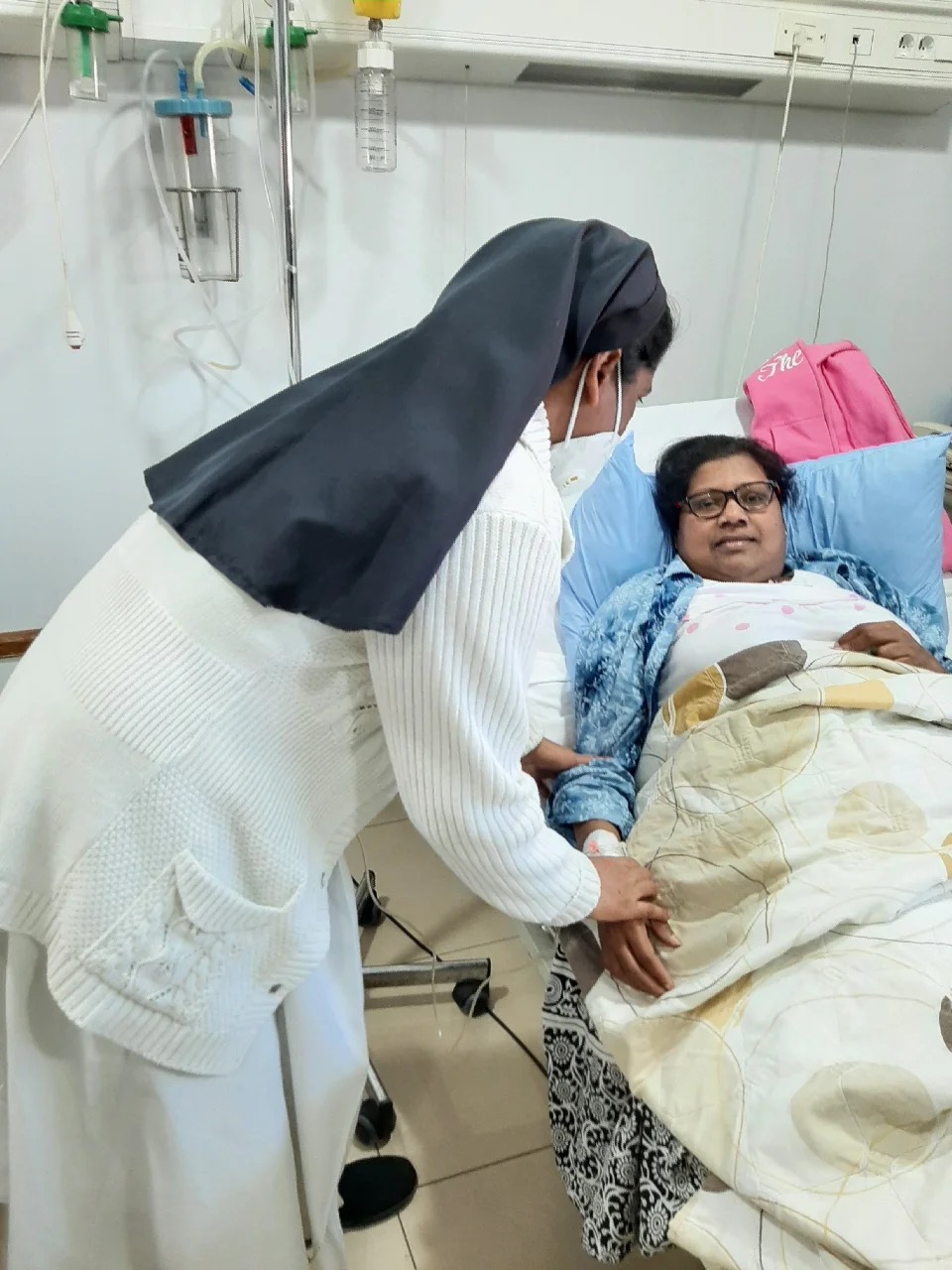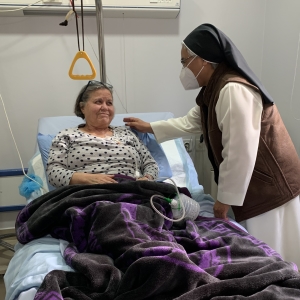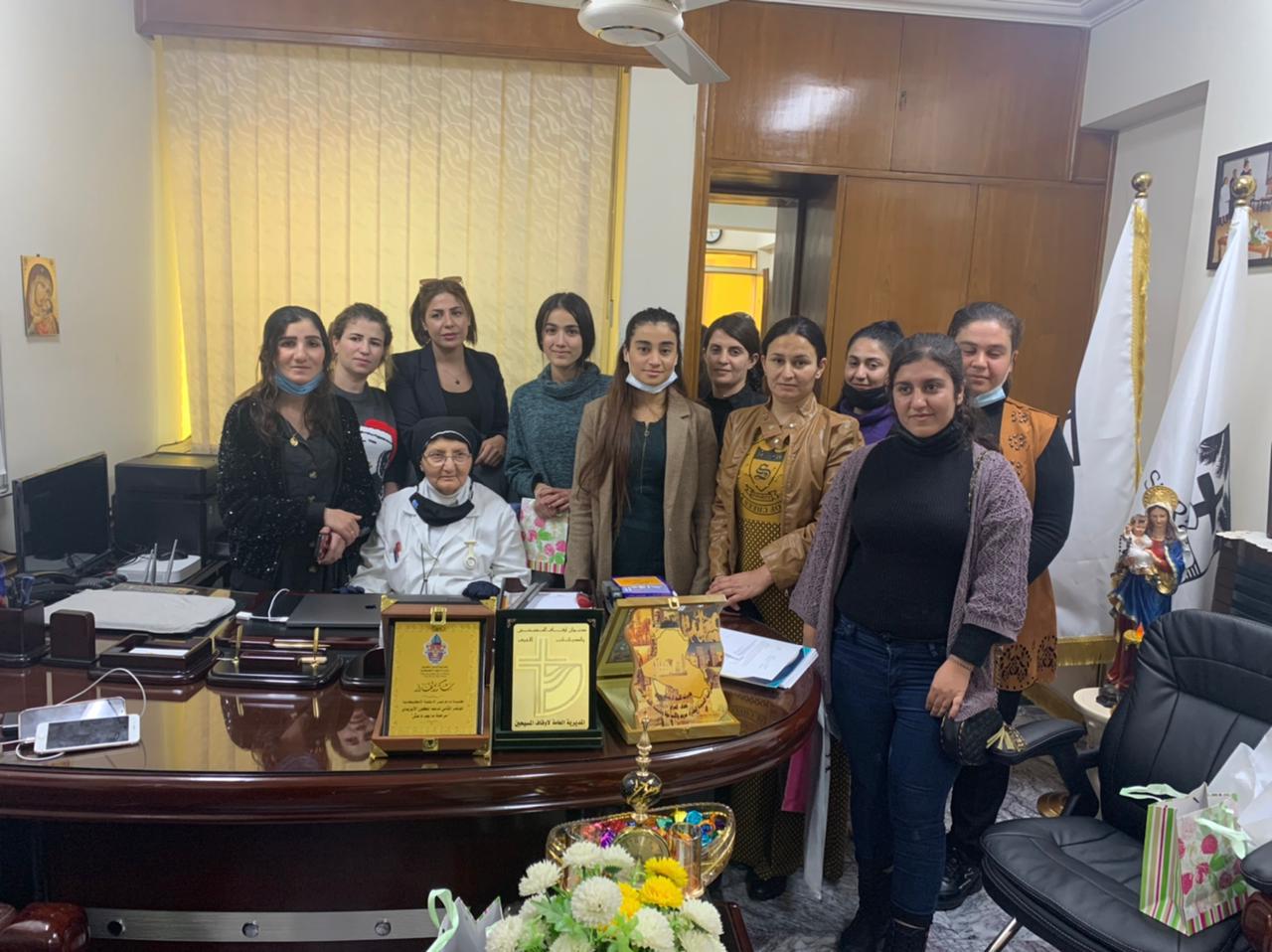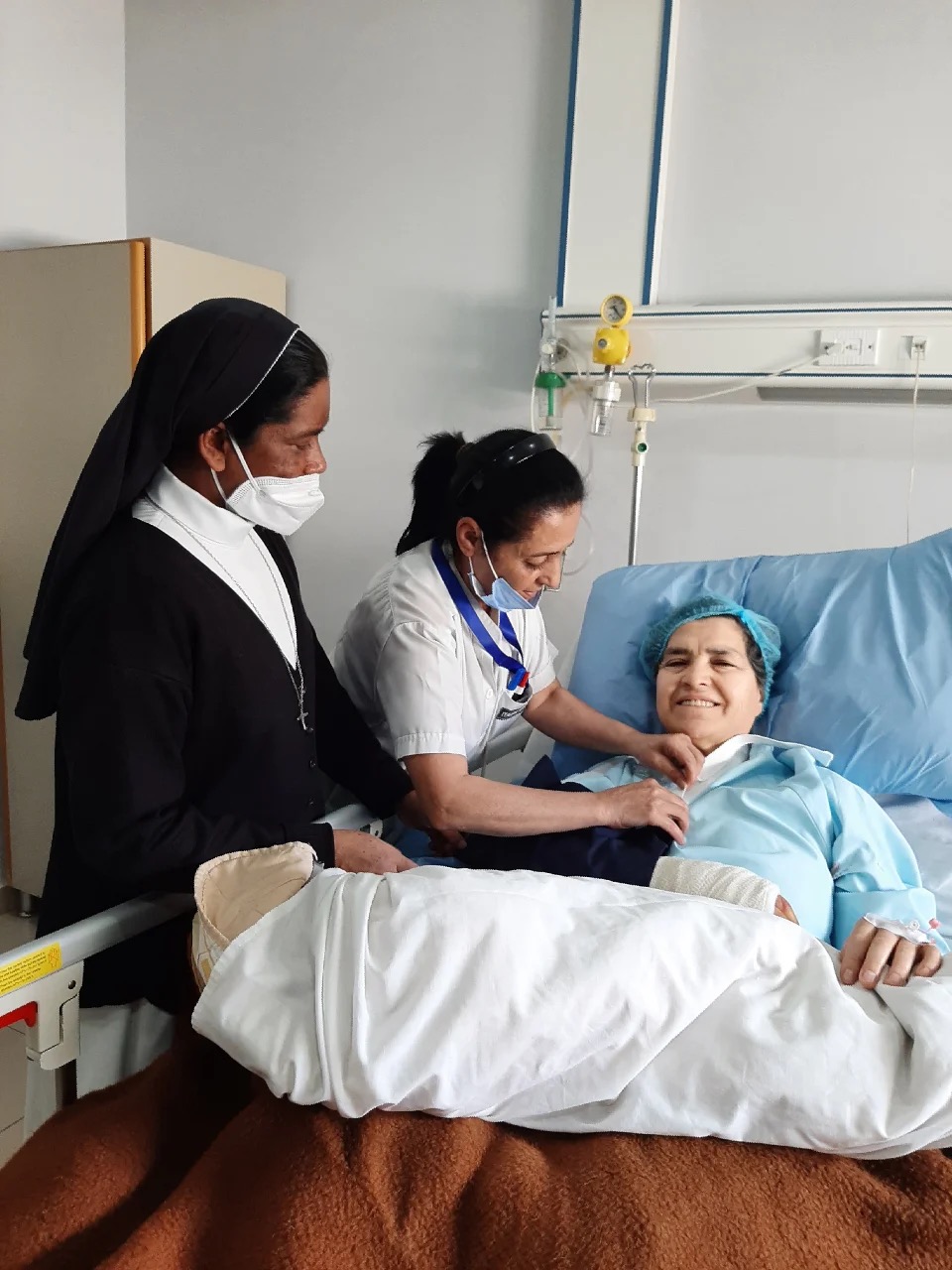Amman (Moyen Orient), 04/12/2022, Sr. Aliya Hikmet Korkees, Déléguée de JPIC.- Among the issues that are still true and realistic in our region of the Middle East is the multitude of displaced people and the immigrants. This is what is happening in Ukraine today which is our story yesterday. In all these circumstances, it is the people who pay a very high price.
"Whenever you did for one of these least brothers of mine, you did for me” Mt 25:40
Given the political conditions that our Arab region has experienced, Iraq, Lebanon and Jordan are all suffering from waves of migration that have overwhelmed these countries and left them confronting with very difficult economic and social conditions. There is an exodus from the north to the centre and north-east of Iraq, and this is what we call internal displacement, and there is an exodus from outside the country, from Syria to Iraq, Lebanon and Jordan, and there is an emigration from Iraq and Syria to Jordan. All these displaced families live in difficult conditions because the country that accommodates these people does not allow them to work in there. Most IDPs (internally displaced people) live in tents and caravans and are deprived of their most basic human rights. Migrants also live in unsanitary flats. The lack of documents, proof of their civil status remains one of the main issues facing IDPs and those who return to their countries continue to face numerous obstacles when applying for or renewing civil status documents. The lack of civil status hinders access to basic services and benefits of education, health care and social security. It also leads to restricted freedom of movement, increased risk of arrest and detention, exclusion from reintegration programmes and an inability to participate in the country's public affairs.
In response, UNHCR continues to implement and support projects and initiatives to enable IDPs and people who return to their country to obtain documents for civil status in cooperation with the government and private partners. This is a brief explanation of the situation of IDPs and migrants in the Middle East region. Our Congregation did not stand as mere observers in the face of all these problems, but contributed as much as we could to help these families.
- We visited these families in their places of residence: camps, caravans, etc...
- We gave them: spiritual guidance and Christian education for the children. Together with priests, the sisters organised prayers and masses for the Christian families. We also took care of their material needs by providing blankets and clothes, we accompany the families offering them hope by raising the morale.
- We welcomed some of these Christian families in our convents offering them our support.
- We received a number of the children of these families free education in our school in Baghdad and in the kindergarten in Basra.
Following the footsteps of St. Dominic and Blessed Marie Poussepin, our Sisters are working to heal the internal and physical wounds of many immigrants and displaced people.



 EN
EN  ES
ES  FR
FR 






